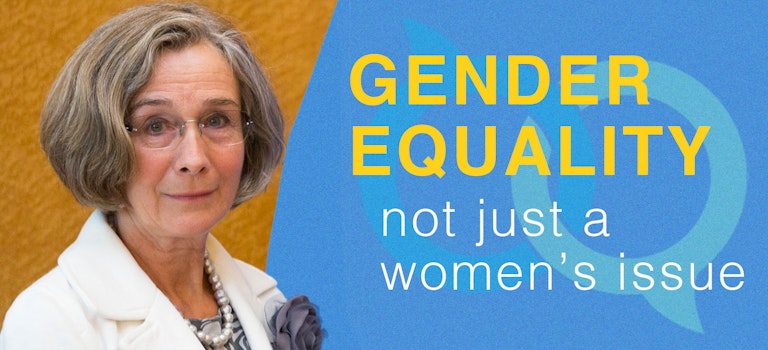IS THERE A SHORT CUT TO GENDER EQUALITY?
By: Ambassador Veronika Bard
Permanent Representative of Sweden to the UN, Geneva
Last week I gathered a group of fellow ambassadors to the UN in Geneva for some joint reflection on how we can advance gender equality within our respective civil services. To start us off, I had invited the Swedish ambassador for Gender equality and coordinator of the Feminist Foreign Policy, Ann Bernes.
Since I have so many outstanding colleagues, the discussion turned out to be tremendously insightful and thought provoking. I therefore feel compelled to share some of the valuable insights that came out of it.
Common challenges
Challenges related to gender equality are similar across societies, making the sharing of experiences from good practices, failures, and regulatory frameworks very useful. In some countries, the hardest battles for gender equality were fought hundred years ago. In other countries, these battles are being fought today.
No society is immune from gender backlashes. There is a continuous need for vigilance.
Gender equality is both about rights and effectiveness: gender equality is both a goal in itself and an instrument to reach other goals such as sustainable development and peace. The effectiveness argument may be necessary to make the case before those who are not yet convinced of the inherent value of gender equality, giving both men and women the freedom to reach their own full potential.
Eliminating gender discrimination in civil services
Gender equality actions plans can be a way for a government to signal to its civil service that it takes gender equality seriously and expects tangible results. Action plans need to involve all issue areas. The “Feminist Foreign Policy Action Plan” for the Swedish foreign service can be highlighted as an example.
There is a need to “gender proof” decisions and the analysis preceding them. What may appear as “objective” and “neutral” may in fact be gender blind. When information is disaggregated by gender, another story may emerge that could call for a different type of response.
One way to proceed, out of many, should be to take gender discrimination out of the civil service structure. Foreign services are not always the most progressive institutions in promoting gender equality. A number of overt and hidden biases against foreign service women include:
* Gender-based restrictions on whom to marry.
* Lack of compensated maternity and paternity leave.
* Lack of affordable child care.
* Lack of adjusted working conditions for single mothers on postings abroad.
However, efforts to correct institutional biases could imply more fundamental changes, for instance in relation to the need for shared responsibility for children.
Aside from changing formal institutions and rules – one may also need to target individuals. Studies suggest that women are not always good at self promotion and may be less inclined to apply for higher job positions. Therefore, civil services –including directors and managers – may need to take a more proactive approach when it comes to recruiting and promoting women talent.
Not just a “women’s issue”
At the end of the day, a government civil service is embedded in a larger societal context of norms and behavior, stipulating what are “normal” pre-supposed roles and responsibilities of women and men.
Attaining gender equality is fundamentally about changing the relationship between women and men. This is why gender equality cannot be treated as a “women’s issue”.
It is not easy to identify short cuts to gender equality. Every country needs to find its own way.
Leadership is, however, critical. That includes not least the role of male leaders. The formation of networks of like-minded can be very helpful. Today, it is also possible to refer to a solid and growing body of research and evidence, which underpins the rationale of women’s increased participation in all aspects of society.
